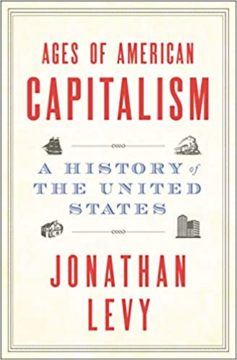Justin H. Vassallo in the Boston Review:
 The start of Joe Biden’s presidency has prompted an unlikely reassessment of the direction of American capitalism. Announcing a “paradigm shift” away from a policy regime that for decades has ruthlessly favored the very wealthy, Biden has invoked the New Deal to capture his vision for activist government. Alongside the expansion of the welfare state, he has promised an ambitious developmental agenda that links together infrastructure, industrial policy, and an energy transition to fight climate change. Though Biden’s resolve to execute his vision remains untested, the prospects for aggressive state intervention now seem far greater than during the Great Recession, when austerity quickly became a transatlantic phenomenon.
The start of Joe Biden’s presidency has prompted an unlikely reassessment of the direction of American capitalism. Announcing a “paradigm shift” away from a policy regime that for decades has ruthlessly favored the very wealthy, Biden has invoked the New Deal to capture his vision for activist government. Alongside the expansion of the welfare state, he has promised an ambitious developmental agenda that links together infrastructure, industrial policy, and an energy transition to fight climate change. Though Biden’s resolve to execute his vision remains untested, the prospects for aggressive state intervention now seem far greater than during the Great Recession, when austerity quickly became a transatlantic phenomenon.
The most salient difference between then and now is that Biden has identified long-term investment as critical to the very preservation of democracy. Breaking from the neoliberal economists who held sway over Democratic policymaking for a generation, Biden’s vision is also a quiet disavowal of Hillary Clinton’s boast three years ago that, despite losing the 2016 presidential election to Donald Trump, she “won the places that represent two-thirds of America’s gross domestic product”—the parts of the country “that are optimistic, diverse, dynamic, moving forward.” The pandemic has only further illustrated how even the country’s most prosperous cities, once the drivers of growth in the age of globalization, are in acute need of state-led projects and egalitarian distribution.
More here.
